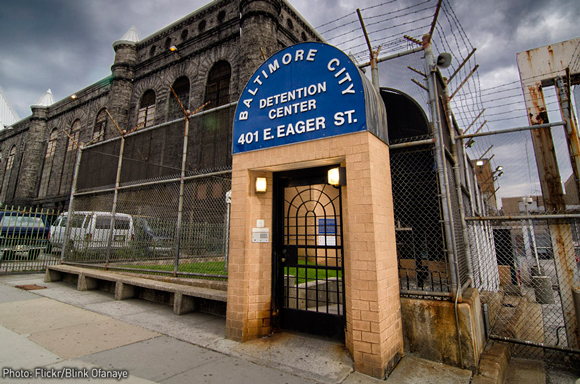Maryland
Tamer Mahmoud v. Monifa McKnight
On October 30, 2023, the ACLU and ACLU of Maryland filed an amicus brief with the U.S. Court of Appeals for the Fourth Circuit supporting the Montgomery County Public Schools (MCPS) in its efforts to ensure that its English curriculum is LGBTQ-inclusive.
Status: Ongoing
View Case
Visit ACLU of Maryland Featured
U.S. Supreme Court
Jan 2020

Immigrants' Rights
International Refugee Assistance Project v. Trump
The American Civil Liberties Union and other partner organizations filed a federal lawsuit challenging President Trump’s Muslim ban executive order, charging it violates the Constitution — including the First Amendment’s prohibition of government establishment of religion and the Fifth Amendment’s guarantees of equal treatment under the law — and federal laws.
Stay informed about our latest work in the courts.
By completing this form, I agree to receive occasional emails per the terms of the ACLU's privacy statement.
All Cases
12 Maryland Cases

Maryland
Mar 2025
LGBTQ Rights
PFLAG v. Trump
Transgender young adults and families with transgender youth, together with PFLAG National and GLMA, filed a federal legal challenge against a January 2025 executive order from the Trump administration directing federal agencies to withhold funds from medical providers and institutions that provide gender-affirming medical treatments for people under nineteen.
Explore case
Maryland
Mar 2025

LGBTQ Rights
PFLAG v. Trump
Transgender young adults and families with transgender youth, together with PFLAG National and GLMA, filed a federal legal challenge against a January 2025 executive order from the Trump administration directing federal agencies to withhold funds from medical providers and institutions that provide gender-affirming medical treatments for people under nineteen.

Maryland Supreme Court
Dec 2024
Criminal Law Reform
Roland Branch v. State of Maryland
This petition to the Supreme Court of Maryland asked the court to reconsider its adherence to Whren v. U.S., 517 U.S. 806 (1996), which declared that a traffic stop undertaken for pretextual reasons does not violate the Fourth Amendment to the U.S. Constitution so long as the police have probable cause to believe that a traffic violation occurred. The ACLU, alongside the ACLU of Maryland, filed an amicus brief in support of the defendant’s petition, in which the ACLU argued that the court should take up the question of whether pretextual stops violate the Maryland Constitution. In September 2024, the Court denied the petition.
Explore case
Maryland Supreme Court
Dec 2024

Criminal Law Reform
Roland Branch v. State of Maryland
This petition to the Supreme Court of Maryland asked the court to reconsider its adherence to Whren v. U.S., 517 U.S. 806 (1996), which declared that a traffic stop undertaken for pretextual reasons does not violate the Fourth Amendment to the U.S. Constitution so long as the police have probable cause to believe that a traffic violation occurred. The ACLU, alongside the ACLU of Maryland, filed an amicus brief in support of the defendant’s petition, in which the ACLU argued that the court should take up the question of whether pretextual stops violate the Maryland Constitution. In September 2024, the Court denied the petition.

Maryland Supreme Court
Jun 2024
Reproductive Freedom
Moira Akers v. State
This case concerns whether prosecutors can admit evidence that a person exercised their right to decide whether to terminate their pregnancy as proof of intent for murder. Here, the prosecution’s use of this evidence at Moira Akers’ trial denied her due process, resulting in an unjust conviction and a 30-year prison term. The ACLU’s Abortion Criminal Defense Initiative, alongside the ACLU of Maryland, filed an amicus brief arguing that allowing admission of this evidence not only violated Ms. Akers’ rights but chills the right of all Marylanders to freely decide whether to continue or end their pregnancies. The Maryland Supreme Court issued a ruling on February 19th, 2025 overturning Moira Akers’ conviction on the grounds of inadmissible evidence.
Explore case
Maryland Supreme Court
Jun 2024

Reproductive Freedom
Moira Akers v. State
This case concerns whether prosecutors can admit evidence that a person exercised their right to decide whether to terminate their pregnancy as proof of intent for murder. Here, the prosecution’s use of this evidence at Moira Akers’ trial denied her due process, resulting in an unjust conviction and a 30-year prison term. The ACLU’s Abortion Criminal Defense Initiative, alongside the ACLU of Maryland, filed an amicus brief arguing that allowing admission of this evidence not only violated Ms. Akers’ rights but chills the right of all Marylanders to freely decide whether to continue or end their pregnancies. The Maryland Supreme Court issued a ruling on February 19th, 2025 overturning Moira Akers’ conviction on the grounds of inadmissible evidence.

Maryland
Jul 2022
Smart Justice
Prisoners' Rights
Duvall v. Hogan
The settlement agreement was approved by the court on June 28, 2016.
Explore case
Maryland
Jul 2022

Smart Justice
Prisoners' Rights
Duvall v. Hogan
The settlement agreement was approved by the court on June 28, 2016.

Maryland
Sep 2021
LGBTQ Rights
Stone v. Trump
The ACLU, ACLU of Maryland, and Covington & Burling LLP filed a lawsuit against the Trump administration on behalf of six members of the armed forces who are transgender and the ACLU of Maryland. The lawsuit challenges the president’s directive banning transgender service members from continuing to serve in the military, banning transgender service members from receiving certain medically necessary health care, and banning transgender individuals from enlisting in the armed forces.
Explore case
Maryland
Sep 2021

LGBTQ Rights
Stone v. Trump
The ACLU, ACLU of Maryland, and Covington & Burling LLP filed a lawsuit against the Trump administration on behalf of six members of the armed forces who are transgender and the ACLU of Maryland. The lawsuit challenges the president’s directive banning transgender service members from continuing to serve in the military, banning transgender service members from receiving certain medically necessary health care, and banning transgender individuals from enlisting in the armed forces.
